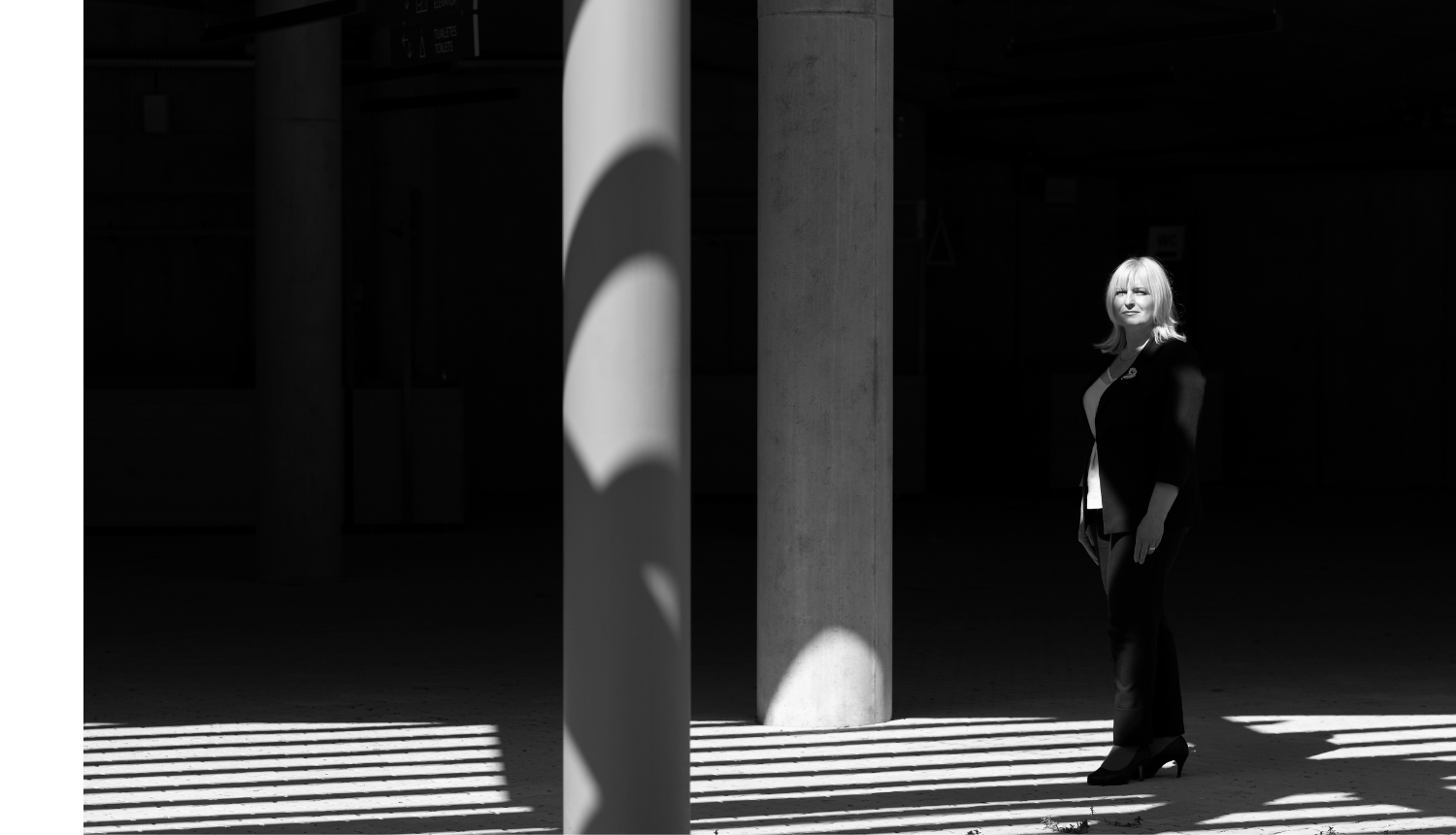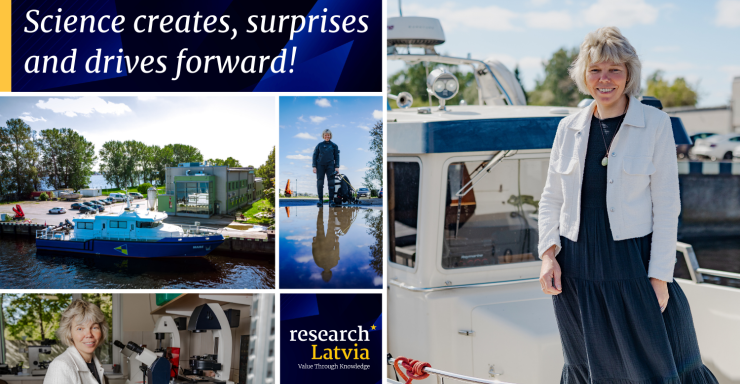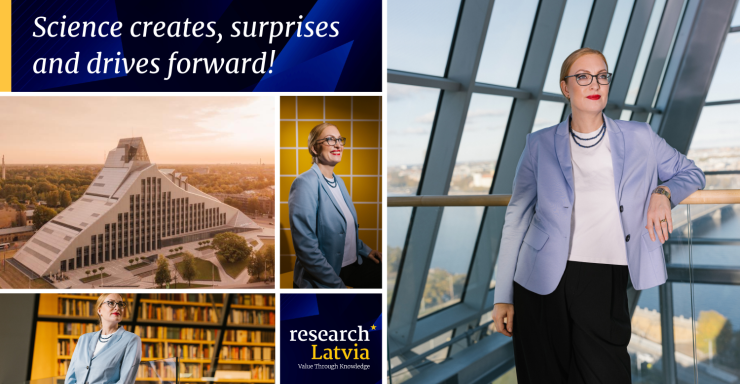Dr. sc. ing. Sandra Muižniece-Brasava, Professor and leading researcher, Faculty of Food Technology, Head of the Department of Technology and Knowledge Transfer, Latvia University of Life Sciences and Technologies, Corresponding Member of the Latvian Academy of Sciences.
There is hardly a greater motivator for a scientist than to see the fruits of their labour – inventions, technologies, products – on the shelf in Latvia and abroad.
Sandra’s main research interests are sustainable food packaging technologies and optimisation of food packaging according to an eco-design strategy. Together with Baltic and Scandinavian colleagues, she is also researching an innovative area – the use of biodegradable packaging and edible casing in cheese production. Sandra is also involved in the development of dry rations for the National Armed Forces.
Sandra Muižniece-Brasava, a food technologist who is in the cooking business herself, jokes that there is no equivalence between a food technologist and a chef. However, her research and daily work focus on a slightly different area: food packaging and how to make it more environmentally friendly. The development of food packaging technologies is a complex area of research that is carried out in close contact with food manufacturers. Every slight change in packaging material has a significant impact on packaging technology, the speed and mode of operation of machinery, the shelf-life and taste characteristics of the product, and other important factors that determine the cost of production and the sales potential of food products.
Sandra works on food packaging sustainability issues on several levels – application of sustainable materials in waste reduction, beneficial use of by-products, use of by-products of food production. Her Master’s and PhD thesis focused on bioplastics and their use in food packaging.
Although bioplastics are biodegradable, as food packaging they are not always completely environmentally friendly. Food packaging is often complex, including multilayered, which means that biodegradable materials also come in different forms and degrade differently: at different temperatures, under different conditions, over different time periods and in different ways, making them difficult to recycle.
For this reason, Sandra’s research also focuses on how to reduce packaging, and therefore waste, in line with the principles of the bioeconomy, and on how to develop monolithic materials that are easier to recycle. One of the solutions to reduce waste is to follow the principles of eco-design: to maximise the potential of packaging, to fill food packaging shapes to the maximum and to make them out of a uniform packaging material, i.e., to reduce the resources consumed and to optimise logistics.
One of Sandra’s most interesting recent research projects is on the circular economy: how to use a by-product of cheese production, whey protein, to create an edible and fully biodegradable casing for cheese, without harming the ripening and storage process.
An important aspect of Sandra’s professional day-to-day work is also the development of the National Armed Forces food parcels, which is constantly being continued and optimized. When she started this work, her goal was to develop the first “dry ration” packs in Latvia and to ensure that they contain products produced in Latvia, while at the same time ensuring that the products are balanced, that the packs are easy to use in non-standard conditions and outdoors, have a long shelf life and retain good flavour qualities. Sandra has also received several awards from the Latvian Ministry of Defence for this work.
As a researcher, Sandra is convinced that all processes in the world are interconnected, so regarding both food packaging and sustainability issues in general, people need to start with themselves, their country, and then look beyond the borders of their country and sometimes the continent.
The project "Research Latvia 2024" is implemented within the framework of the ERDF project “Integrated National Level Measures to Strengthen the Representation of Latvian Research and Development Interests in the European Research Area”, No. 1.1.1.5/17/I/002.


